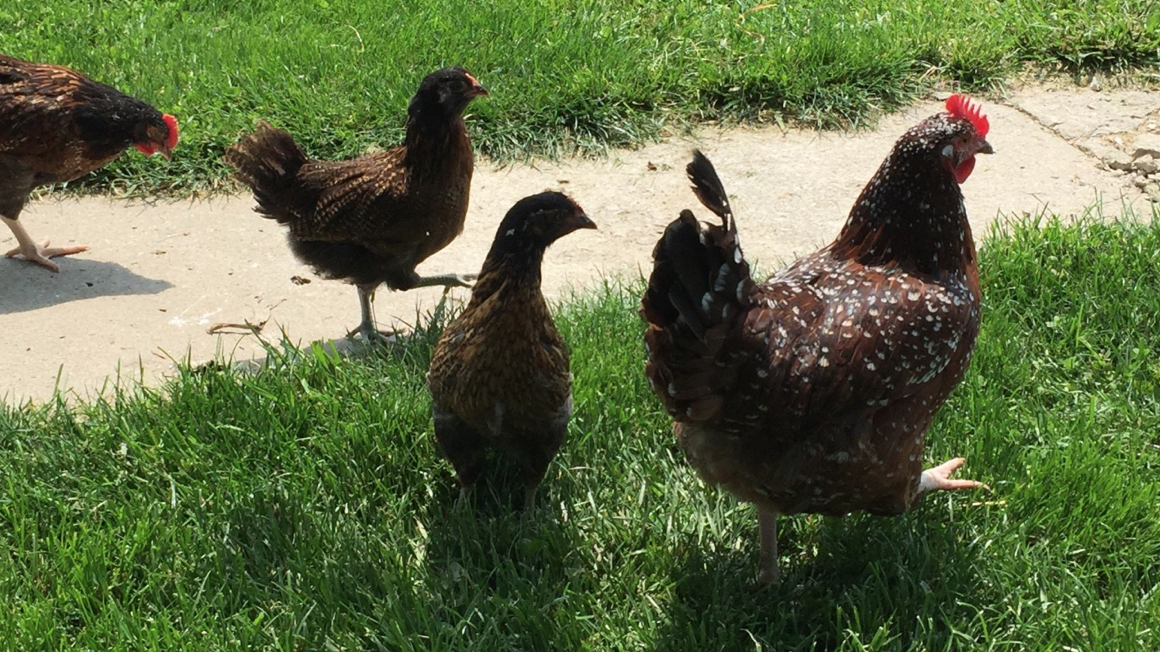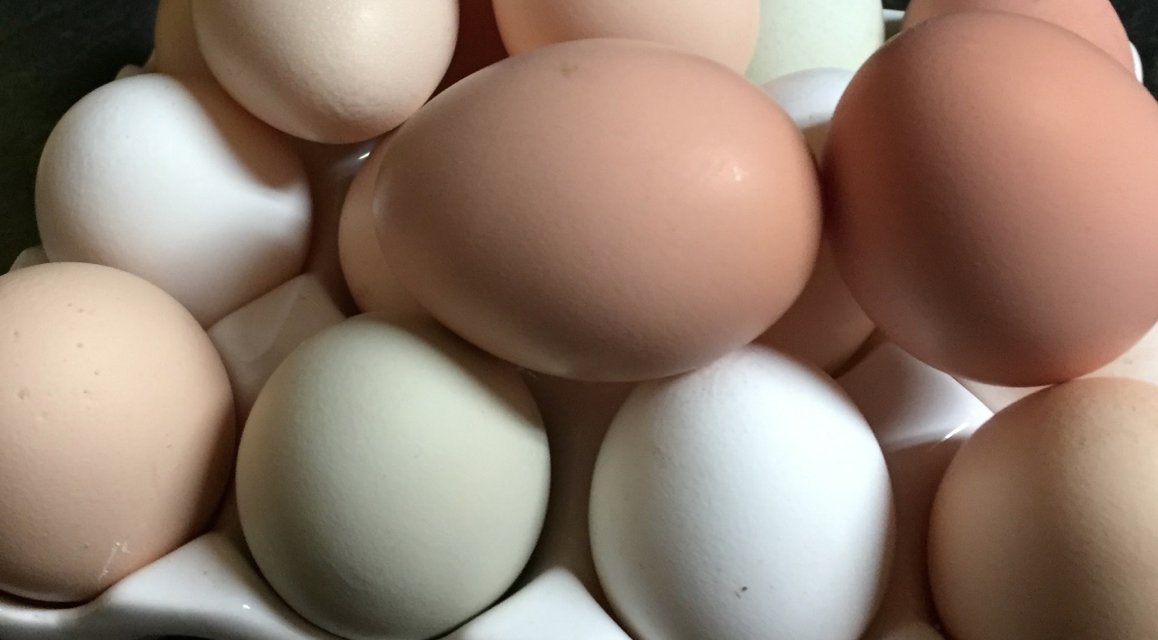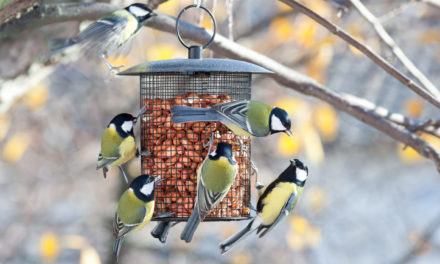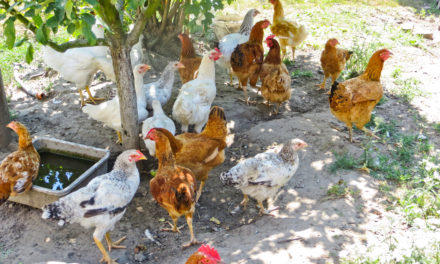Recently, I quit selling eggs. I still have many former clients and friends ask if I was serious as I have been providing farm-fresh eggs to families for many years. I hated telling my clients, most dear friends, that they could either go to a local all-natural poultry farm store (no more coming out to the homestead for eggs and a visit) or purchase so called free-range eggs at a grocery store. Don’t get me started on how little space commercial egg productions are required to have to claim their eggs as “free-range”.
Moving to a smaller homestead has forced some hard changes. Gone for a season is my usual chicken census of a minimum of 50 birds. My highest count was 187 layers along with ducks, baby chicks, turkeys and my all male crew of guineas. Since it was as easy to care for a large flock as it is just a few, I have always seen poultry as a “the more the merrier” party. But that is not how Jim, my hard-working husband sees chickens. He sees manure. There’s lots and lots of work mucking out the coops, lots of work building housing and lots of my time spent cleaning and packing eggs. In his defense, the only downside to the deep litter system of leaving all the manure in place all winter is the spring clean out.
So let’s see if it is profitable to sell eggs. You can go to any grocery store and buy eggs for next to nothing. I saw store-brought eggs for 69 cents a dozen this winter. No way can you compete with the commercial boys. But raising your own eggs for yourself and a few friends is about so much more than just turning a profit. Time to think in “out of the box” terms like quality and freshness along with bringing in some funds to help out on the costs of producing those great tasting eggs.
The eggs you gather fresh and warm from the nesting boxes are of a much higher quality than the commercial eggs riding down the conveyer belt in an ammonia filled chicken house. Did you know that no egg that you can purchase in any store will ever be fresher than the eggs you gather from the nesting boxes in your coop? Check on an egg carton for the date when those eggs were put into that carton. They use the Julian calendar which starts with 001 as January one of the current year, making it confusing for most of us to quickly figure out how long those eggs have been on the store shelf. Crack that store egg and the whites run while your fresh white will stand up around the deep orange yolk, no comparison.
What about the nutrition of commercial eggs vs the free-range egg?
Years ago, Mother Earth News sent some eggs from several well-known organic homesteaders who raised free-range chickens along with eggs from several commercial producers to an independent laboratory for testing. Here are their findings:
Eggs from hens raised on pasture have:
1/3 less cholesterol
1/4 less saturated fat
2/3 more vitamin A
2 times more omega-3 fatty acids
3 times more vitamin E
7 times more beta carotene
4 to 6 times more vitamin D
Amazing that allowing hens to have choice in their diet, room to range and roam freely and freedom from the stress of living in a small cage where they can’t even turn around, can make such a difference.

For most folks, the middle of the road concept for selling eggs works the best. They sell eggs to customers in the area who stop in to pick up the eggs from their farm. This is the only legal way for those of us who live in Illinois to sell eggs simply. If you want to sell eggs at a farmer’s market or any other venue, off your farm, it will cost you extra out-lay for equipment like a professional egg scale to grade the egg, as well as candlers. You also must pass inspections of not only your work area but also your hens’.
I found it a lot less intrusive to keep my flock manageable and sell just enough eggs to help pay for the layer feed I purchase at Buchheit.
This way I was not out any funds except my time. I am so spoiled with my farm fresh eggs that like many of my fellow “flocksters” I will continue to raise chickens regardless of the cost! Besides the girls are a great source of delightful entertainment. This is Melba, a Speckled Sussex, showing off some of her chicks. So take the plunge, go to Buchheit and get some chicks and start on one of the most fun farm adventures ever. Be Blessed! Anne May






